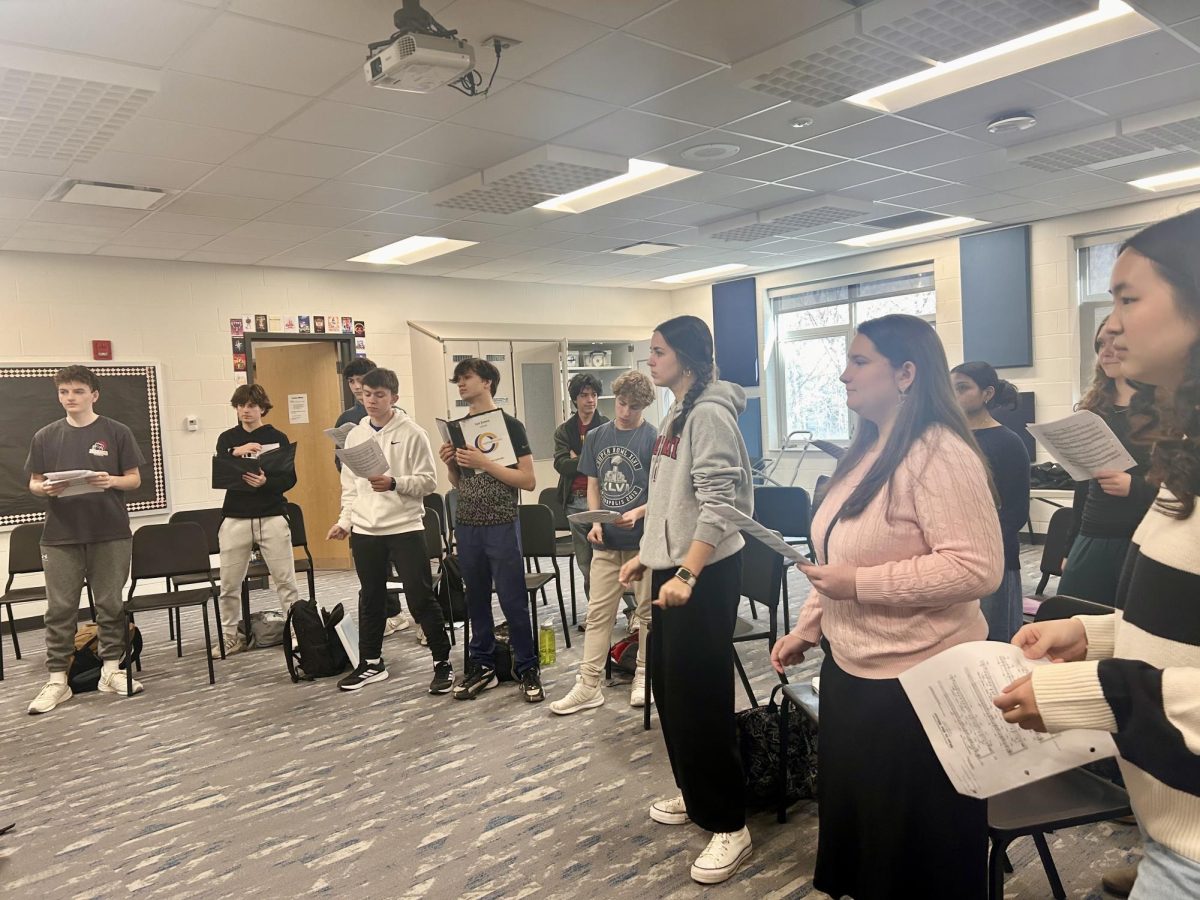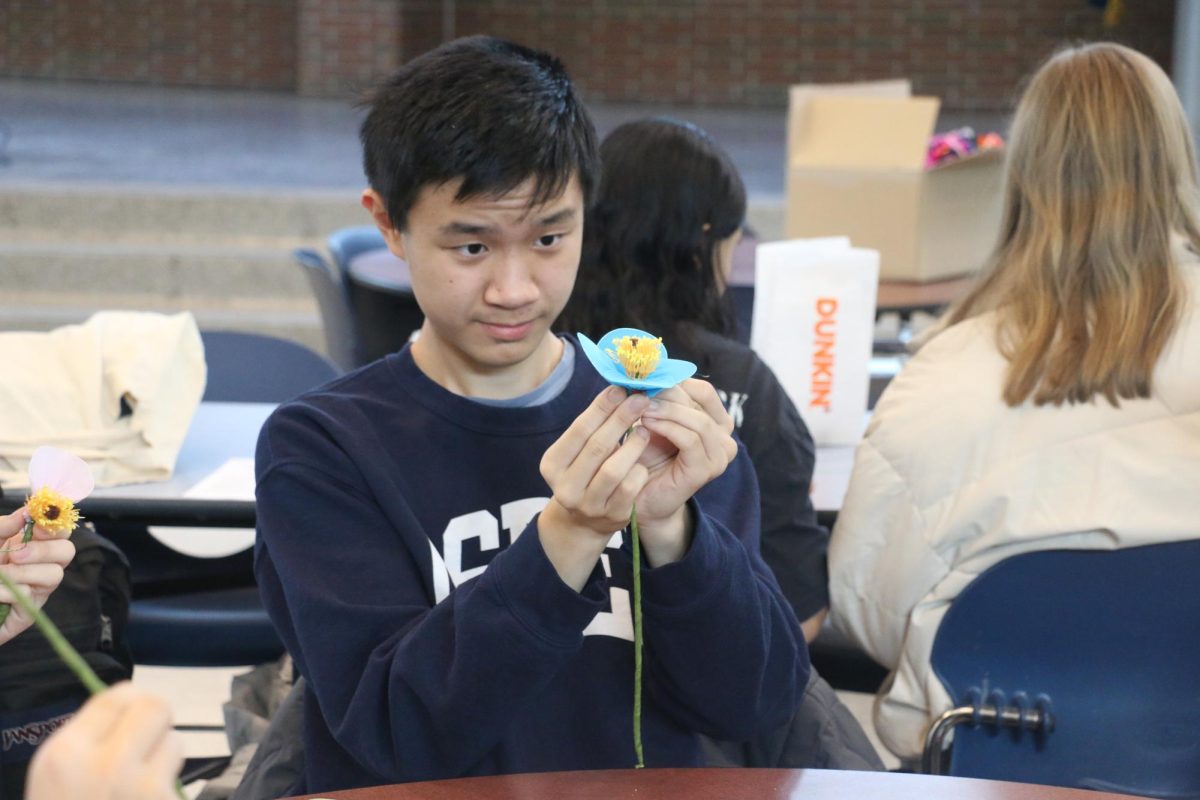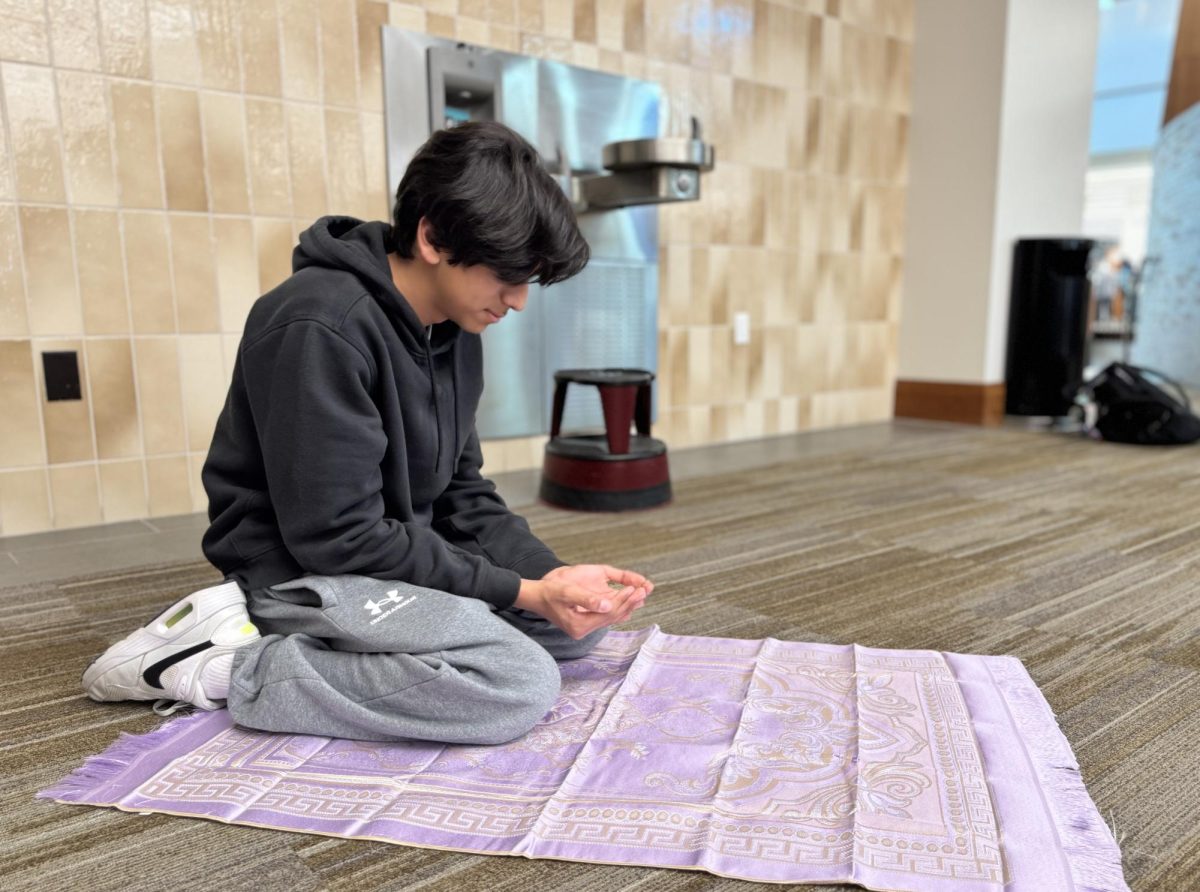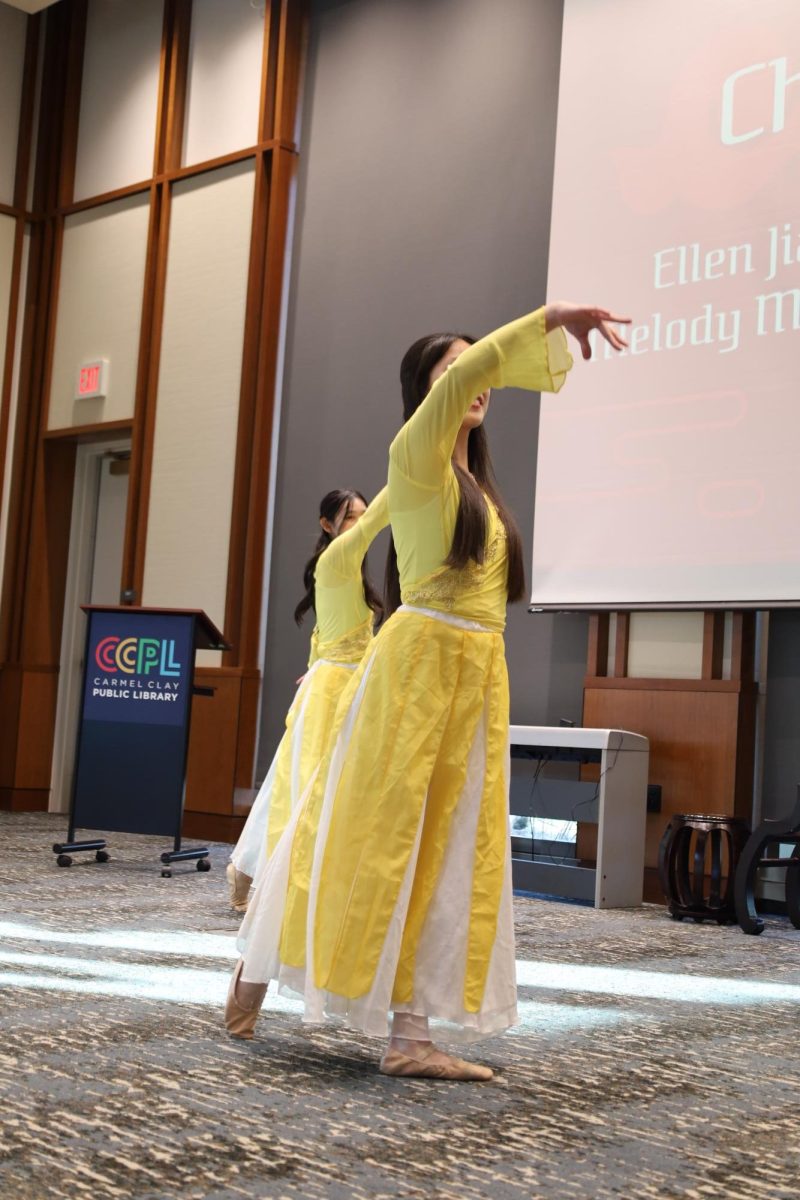Students take advantage of new waiver for physical education, but policy has little effect on overall student health despite national health trends
by Melinda Song
For Leslie Mills, flute player and freshman, marching band is more than a time-consuming extracurricular activity; playing and performing required intense physical ability and well-maintained fitness.
“(Being in marching band) may not seem a lot because when most people think of the marching band, they think, ‘Oh, it’s just some person holding an instrument and walking in a straight line.’ Really, for the first three minutes of our show, we’re running across the field, and you’re out of breath by the first 10 counts,” Mills said.
“The summer practices were long, I should say, intense, and we had some nine-to-nines (9 a.m. to 9 p.m.) so 12-hour days—not too great. You know, push-ups, crunches, jumping jacks every single day. It’s a lot of hard work.”
For Mills and many others at this school, her participation in marching band lets her waive a second semester of physical education. According to Kim TenBrink, physical education department chairperson, over 500 students have chosen the waiver option this school year.
“Last year, the Board of Education along with our state superintendent decided that each school could develop a waiver for students as an alternative means of earning credit,” TenBrink said. “So, our school had a committee, and what we came up with was all students had to take P.E. I, and they could take P.E. II by alternate means.”
However, waiving a second semester of physical education may seem counterproductive in the face of rising childhood obesity rates. According to the Centers for Disease Control (CDC), childhood obesity has tripled since 1980, causing many schools to increase physical education requirements. In a 2006 School Health Policies and Programs study, the CDC found that 79.3 percent of school districts required schools to follow national or state health standards, up from 68.8 percent in 2000.
But TenBrink said the new P.E. waiver policy hasn’t affected student exercise or general health here. In fact, she said P.E. class enrollments have increased this year.
“Our numbers, even with summer school, are still up, which is great because we have an epidemic of childhood obesity,” she said. “There is a decrease (in P.E. enrollment), obviously, but because our class sizes have been larger, we’ve been able to, in some of our classes, lower them.”

Mills said the fact that marching band fulfills the required gym credit did not influence her to join.
“I kind of like gym. So when they said they were getting rid of it, it didn’t really affect me that much,” Mills said.
Some students like Nina Sun, tennis player and sophomore, have chosen to fulfill the state-mandated requirement of two semesters of physical education, although they have the option to waive out of one.
“You never know what might come up. For some reason, maybe I won’t be able to play or not make the (tennis) team or something,” Sun said. “Since there has always been a chance that summer gym would be cancelled, I took it last summer just in case. Gym isn’t really the most taxing subject, so I thought, ‘Why not just get it over with?’”
TenBrink said one way this school tries to improve student health and fight childhood obesity is by offering a variety of physical activities in P.E. I in order to interest students.
“We work really hard to teach students how to live a healthy lifestyle, and that’s through…the whole wellness circle: the mental, the social, the emotional (and) the physical,” she said. “So, it’s all about the whole person: exercising, making good lifestyle choices and nutrition.
“Because really, when you think about it, being healthy, yes it includes your cardiovascular system, but you also have to find exercises and hobbies that help your stress level,” TenBrink said.
“So, we do offer a variety of activities so hopefully students will find at least one thing that they like. We expose them to a lot—maybe some of the things they haven’t been exposed to in middle school.”
Additionally, TenBrink said the school now offers new P.E. classes in order to improve student health. She said students who want to stay physically active should look into the elective courses this school offers.
“We’re having some new (electives) next year. We’re replacing (recreational) games and lifetime sports with a class called lifetime fitness. We’re also adding a sports medicine class, which is for students who are interested in going into some kind of sports medicine when they get out of high school. ”
As for Mills, she said she plans to continue participation throughout her high school career even though she has completed her gym requirements.
“(Marching band) takes up so much time, it’s like you really have no time to do anything else. When you’re in marching band, it’s like your life. That’s all you do: live, eat, breathe marching band,” she said. “(The most enjoyable part of playing is) the fulfillment of accomplishing something so big.”































![AI in films like "The Brutalist" is convenient, but shouldn’t take priority [opinion]](https://hilite.org/wp-content/uploads/2025/02/catherine-cover-1200x471.jpg)













































![Review: “The Immortal Soul Salvage Yard:” A criminally underrated poetry collection [MUSE]](https://hilite.org/wp-content/uploads/2025/03/71cju6TvqmL._AC_UF10001000_QL80_.jpg)
![Review: "Dog Man" is Unapologetically Chaotic [MUSE]](https://hilite.org/wp-content/uploads/2025/03/dogman-1200x700.jpg)
![Review: "Ne Zha 2": The WeChat family reunion I didn’t know I needed [MUSE]](https://hilite.org/wp-content/uploads/2025/03/unnamed-4.png)
![Review in Print: Maripaz Villar brings a delightfully unique style to the world of WEBTOON [MUSE]](https://hilite.org/wp-content/uploads/2023/12/maripazcover-1200x960.jpg)
![Review: “The Sword of Kaigen” is a masterpiece [MUSE]](https://hilite.org/wp-content/uploads/2023/11/Screenshot-2023-11-26-201051.png)
![Review: Gateron Oil Kings, great linear switches, okay price [MUSE]](https://hilite.org/wp-content/uploads/2023/11/Screenshot-2023-11-26-200553.png)
![Review: “A Haunting in Venice” is a significant improvement from other Agatha Christie adaptations [MUSE]](https://hilite.org/wp-content/uploads/2023/11/e7ee2938a6d422669771bce6d8088521.jpg)
![Review: A Thanksgiving story from elementary school, still just as interesting [MUSE]](https://hilite.org/wp-content/uploads/2023/11/Screenshot-2023-11-26-195514-987x1200.png)
![Review: "When I Fly Towards You", cute, uplifting youth drama [MUSE]](https://hilite.org/wp-content/uploads/2023/09/When-I-Fly-Towards-You-Chinese-drama.png)
![Postcards from Muse: Hawaii Travel Diary [MUSE]](https://hilite.org/wp-content/uploads/2023/09/My-project-1-1200x1200.jpg)
![Review: "Ladybug & Cat Noir: The Movie," departure from original show [MUSE]](https://hilite.org/wp-content/uploads/2023/09/Ladybug__Cat_Noir_-_The_Movie_poster.jpg)
![Review in Print: "Hidden Love" is the cute, uplifting drama everyone needs [MUSE]](https://hilite.org/wp-content/uploads/2023/09/hiddenlovecover-e1693597208225-1030x1200.png)
![Review in Print: "Heartstopper" is the heartwarming queer romance we all need [MUSE]](https://hilite.org/wp-content/uploads/2023/08/museheartstoppercover-1200x654.png)

